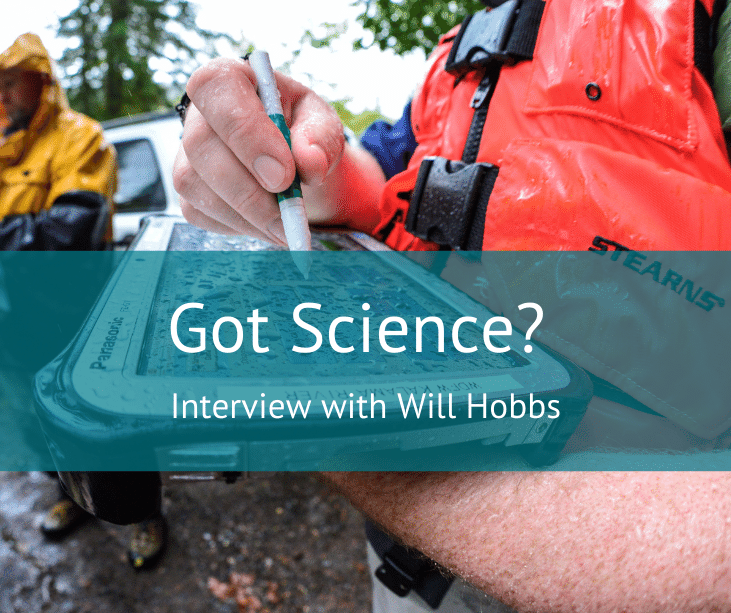"Got Science?" is an on-going series highlighting scientists that are engaging in key monitoring and research contributing to Puget Sound recovery.
Meet
Will Hobbs
Washington Department of Ecology
So what makes you tick? What motivated you to do your current work?
I have always felt comfortable in the outdoors and long recognized that I have a strong connection to the study of aquatic ecology. Therefore, my motivation is a selfish one that allows me to satisfy scientific curiosity and stay connected to the natural world.
If you had to use a common metaphor for describing the kind of monitoring or research work you do, what would it be? (building a house foundation, doing investigative reporting?).
Here’s one I try and avoid – “You can’t see the forest for the trees.” We collect and measure chemicals in tiny, tiny amounts and we collect single celled organisms for analysis. I strive to see the broader picture of ecosystems or food web interactions from the detailed lower levels of the ecosystem.
If you had a 14 year old on the street ask you what does your research mean to them, how would you respond?
My research aims to protect and understand the lakes and rivers of Washington. I work on the side of investigation and my agency colleagues work on the side of regulation. Together we are trying to improve and preserve the health of Washington’s waters for people and organisms that depend on them.
What is the most amazing, wondrous thing you have found out from your research? (meaning a cool thing the organism does, how it does its work etc., )
I’ve been able to rely on algae growing on rocks in the river bed (the slippery covering near the banks of rivers) to help me pinpoint the locations of where toxic chemicals are coming into the river and working their way up to the fish. This algae is called periphyton and it is base of the food web in rivers. It is also the doorway for some chemicals to impact the river ecosystem.
If you had 30 seconds with someone you need to influence to support your work, what would you say about what they will get out of your research in their work and lives. What’s the benefit to them?
As I’m sure you’ve been able to witness over the last few years, our region and our world have become more crowded and the pressures on the environment around us have increased accordingly. My work with others at our agency aims to protect and conserve the environmental health of Washington’s lakes and rivers so that we can enjoy them with others into future generations. We aim to help others understand the impact we can have on our inland waters and how we might work together to protect our resources.
Finally, what is your favorite thing to do when you are not working?
Spend time with family in our camper van and garden.

